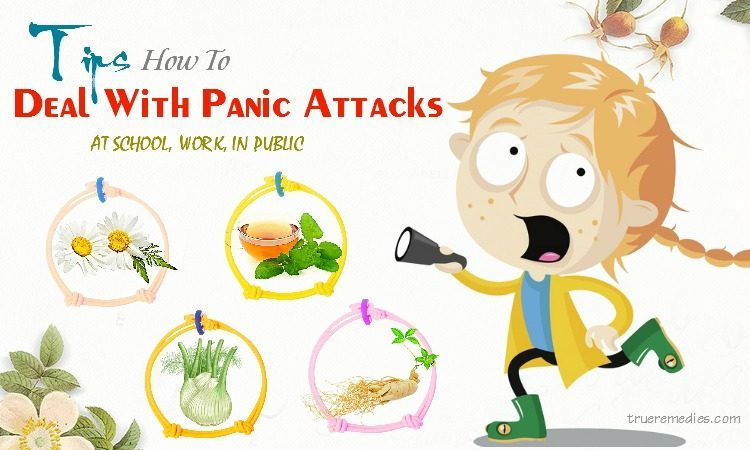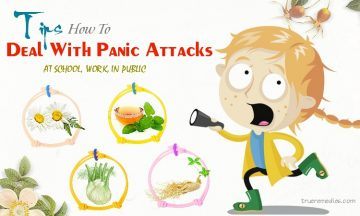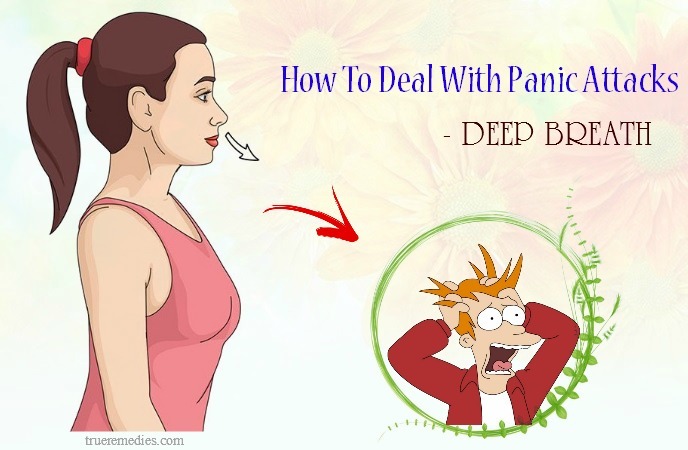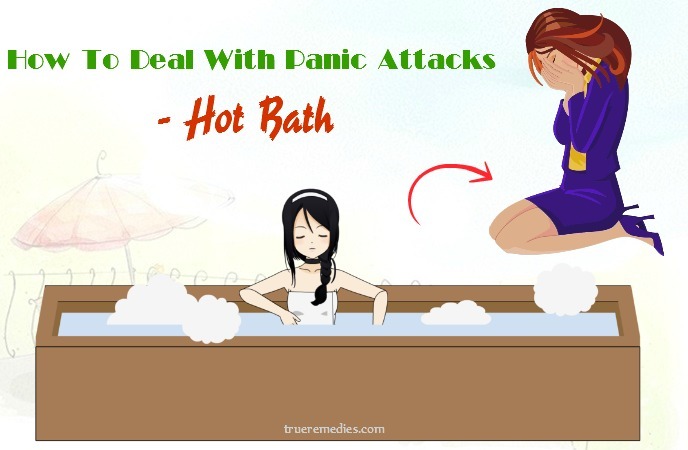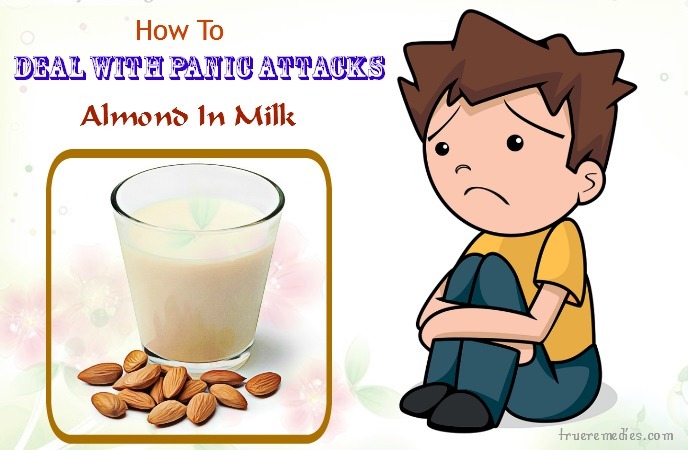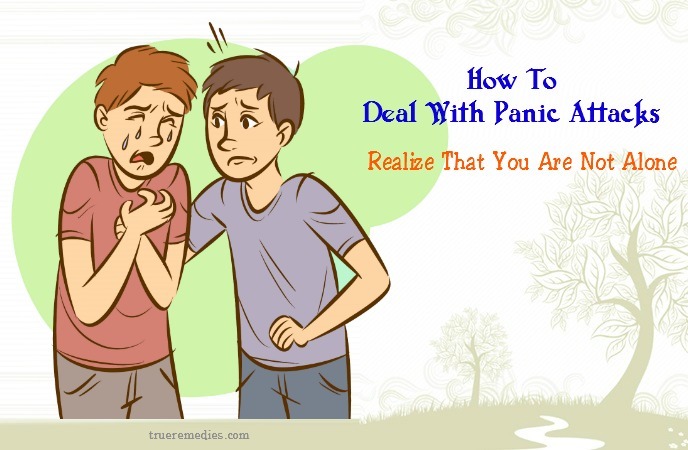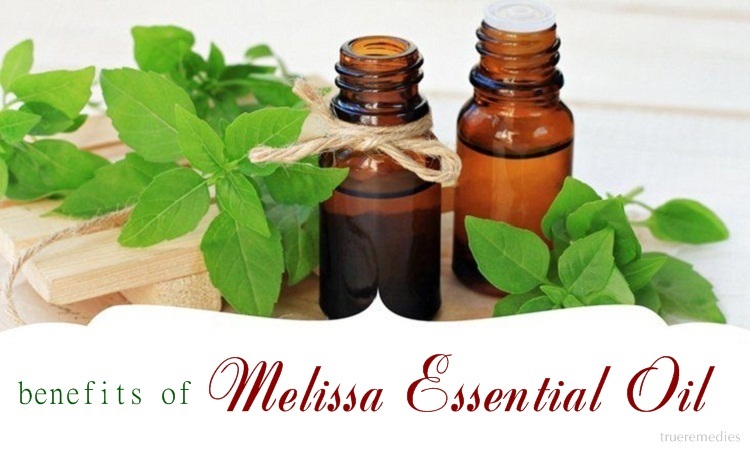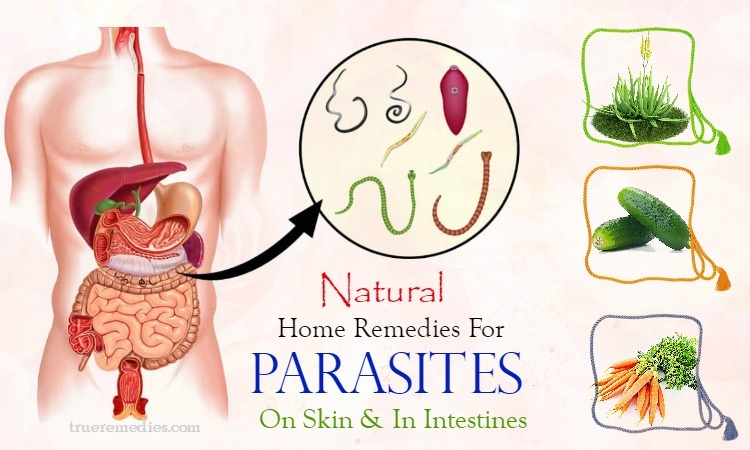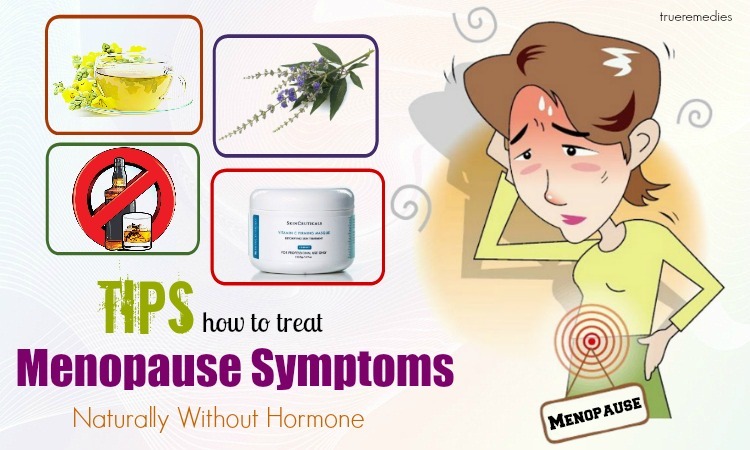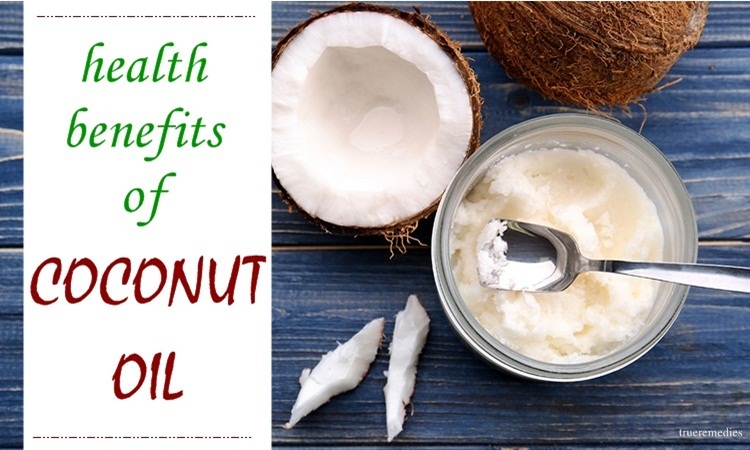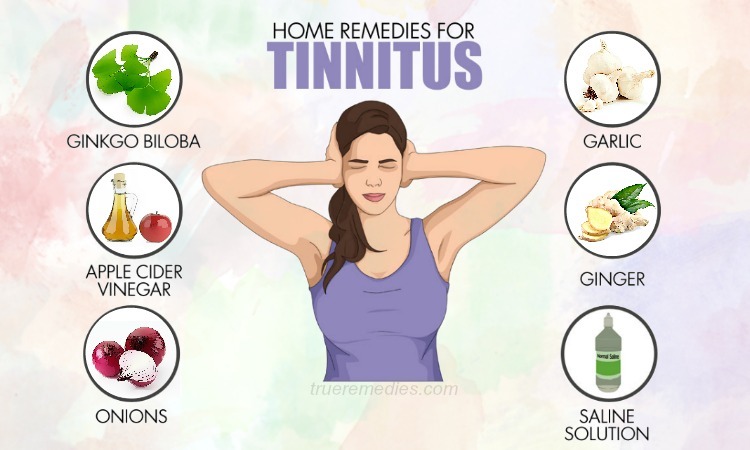updated: 11/20/2019
Contents
Panic attack is a period of severe anxiety that occurs in a short time, causing intense fear of the body. The condition may include increased heart rate, difficult breathing, dizziness, tremors and muscle tension.
Many people experience only one or two panic attacks throughout life, but some others experience it often. This can be a sign of an underlying medical condition called panic disorder. At that time, it is important to seek help as soon as possible because panic attacks can affect your relationships, careers and education, and may even lead to fear of spaces. Although this is very important, many people do not know, so we write this article. Please do not ignore any of the information below.
What Is Panic Attacks?
Panic attack is quite common, especially with teenagers. More than 35 percent of the population experience panic attacks at some stage in their lives. This condition is also called anxiety attack. Panic attack is a period of severe anxiety that occurs in a short time, causing intense fear of the body. The condition may include increased heart rate, difficult breathing, dizziness, tremors and muscle tension. Panic attacks often occur unexpectedly. Usually, they do not involve any external threats. A panic can last from a few minutes to half an hour. However, the subsequent physical and mental effects can last up to several hours.
Without treatment, prolonged panic attacks can seriously affect the lives of patients. Then, they may try to avoid situations (such as being forced out of the living area or being left alone) that they fear can cause panic attacks. For many people, panic attacks occur only in cases of stress or illness. Persons who are constantly experiencing panic attacks are diagnosed with panic disorder – a form of anxiety disorder.At this point, they often have panic attacks which are unpredictable, and they are alos stuck with persistent fear of repeated panic attacks. This causes a lot of negative effects on the quality of life.
What Are Common Causes Of Panic Attacks?
The crux of your anxiety or panic is because you continue to believe in the assumptions or thoughts in your mind. When your heart beats fast, you immediately “magnify” this condition into whether you are having a heart attack, or when you feel dizzy, you immediately think that you are about to faint. Therefore, at some point, you always assume that you are in danger, despite the fact is not.
TrueRemedies Partner Solutions

Need a Help from the Leading Expert Online, Available 24/7?
They’re all here and ready to answer your questions online or by phone. Keep asking questions until you get the answer you need.
When the body think that it is encountering an immediate danger situation, the brain controls the autonomic nervous system to trigger a ‘run or hit' response. A variety of chemicals, including adrenaline, are secreted, activating the physiological response of the body. For example, your heart rate and breathing rises, blood rushes to the muscles that make them tense up to prepare your body for battle or run away from danger. A panic attack can occur when the ‘run or hit' reaction is triggered even if there are no dangerous situations. An individual may experience the symptoms of a panic attacks in seemingly harmless and non-stressful situations, such as when they watch TV or sleep [1].
Some factors may cause the body to trigger a ‘run or hit' reaction in inappropriate situations are:
- Chronic stress: this causes the body to produce stress hormones, such as adrenaline, at a higher level than normal. This condition can be caused by a number of subjective causes such as lack of nutrition, lack of sleep, and addiction to smart phones, etc.
- An acute stress (such as experiencing traumatic events): this can cause the body to suddenly produce a large number of stress hormones.
- Lung injury (shortness of breath): this condition disturbs the balance of the air in the blood because there is insufficient carbon dioxide in the blood [2].
- High intensity exercise: Excessive exercise with high intensity can cause side effects. This can cause extreme reactions to some people, causing panic attacks.
- Excess caffeine consumption: caffeine in coffee, tea and other beverages (tonic water, carbonated soft drinks, etc.) is a potent stimulant that affects the nervous system.
- Illnesses: Some diseases which cause many physical changes can also lead to panic attacks.
- The sudden change of environment: for example, suddenly entering an overcrowded and hot area.
- Other causes: Many common symptoms of a panic attack can also occur in a number of other body conditions. Some drugs or stimulants – such as sedatives and alcohol – can also cause symptoms of panic attacks.
What Are Common Symptoms Of Panic Attacks?
The panic disorder usually lasts only a few minutes, but may recur for several hours at a time [3]. Here are common causes of this condition:
- Fear suddenly and repeatedly.
- Feeling uncontrollable.
- Overwhelmed by the feeling of fear and horror that almost the body feels paralyzed.
- Fear or anxiety about when the next panic will occur.
- Fear of losing control or fear of the end of the world.
- Feeling you are not in reality.
- Feeling throat tightening.
- Feel you are isolated from everything around you.
- Keep away from previous panic attacks.
- Feels like crazy or dying.
- Physical symptoms in panic may include rapid heart beat, sweating, shortness of breath, dizziness, hot or cold sensation, numbness or palpitations, chest pain, choking, tremor and abdominal pain.
You may experience other symptoms not mentioned. If you have any questions about the signs of the disease, please consult your doctor.
Who Is At High Risk Of Panic Attacks?
Panic attack is a common condition. It can happen to anyone of any age or religion. However, women and adolescents are at higher risk for this condition than men. One of the main reasons is that men's physical is better than women's. In addition, people who have no scientific lifestyle, often stay up late and lack of nutrients cause physical decline, is also subject to high risk of this condition.You can control this disease by minimizing risk factors. See your doctor for more information.
When To See A Doctor?
If you have any of these signs or symptoms or have any questions, please consult your doctor. Each person's condition is different, so please consult your doctor to select the most suitable option. In addition, if your condition is not improved after a period of treatment, you should see your doctor to avoid serious complications.
Here are some basic information about panic attacks that you should know. As you can see, this is a disease that has a very negative impact on the psyche and quality of life of the patient, so treatment for it should be done as soon as possible. Below, we introduce you tips to help you overcome this situation. It is time to find tips on how to deal with panic attacks at school, at work and in public. Take a look at TrueRemedies.com!
34 Tips On How To Deal With Panic Attacks At School, At Work & In Public Without Drugs
1. Deep Breath
This is the first home remedy in this list of tips on how to deal with panic attacks at school. When in a panic, you feel like you will have difficulty breathing naturally. The best way to overcome panic is to pay attention to breathing. Focusing on breathing and learning to breathe more deeply will help you relax and overcome panic attacks. Being aware of the breath can put an end to panic attacks and reduce the frequency with which they appear in general.
First, practice deep breathing exercises when you are calm and do not panic. By practicing in a safe and quiet environment, you may be more likely to experience panic or serious anxiety. Practicing deep breathing will help you relax and help you be able to overcome any panic in the future.
Take a moment to pay attention to the feeling of breath passing through the nose or mouth as they move down the respiratory tract into the lungs. After a few breathing rhythms, try to pay attention to any other sensation that may come with breathing. Being more aware of some of the subtle sensations in the body helps to influence how the body responds to bad emotions. Not only is deep breathing good for panic attacks, but it is also beneficial for your overall health.
If you have not found the guidelines for deep breathing, you can follow the steps below:
- Sit upright on a comfortable chair.
- Place your hand on your stomach.
- Take a long and slow breath through your nose while counting one to four. You have to feel your belly bulging.
- Hold breath when counting one to two.
- Then, exhale through the mouth when counting to four.
Do this exercise twice a day for 5-10 minutes to help effectively reduce stress.
2. Live For The Present
This is another must-try treatment in this list of tips on how to deal with panic attacks at school.Whatever you do, focus on that. If you are driving, focus on feeling your hands on the steering wheel and your body sitting in a chair. Feel your senses and listen to the noise. If you are alone, just sit down, feel the coolness of the floor tiles or softness of the carpet. Focus on the sensations that the body feels: the fabric on the clothes or the weight of the shoes on the feet. Back to rational thinking. Allow yourself to think clearly. Do not criticize right away (“I cannot believe this has happened, it's shameful”), but let’s yourself realize that you are okay and no life threatening problem is going on.
3. Find The Cause Of Panic Attacks
This remedy is one of little – known tips on how to deal with panic attacks at school. Panic attacks often occur with stressful events in life, such as the death of a family member, an important life event such as going to college, marrying or having children, or psychological trauma like being robbed. If you've recently experienced stress and tend to become more anxious, this can increase the risk of neurological damage when you experience panic attacks. If you've had a panic in the past and are experiencing some recent stressful events, understand that you are at high risk for another panic attack. Therefore, let’s spend more time taking care of yourself.
You should also sit down and identify the situation that caused your panic. You may want to make a list of situations that can cause panic attacks. This can also help you to recognize when panic seems to occur. In this way, you will be prepared to apply the same cognitive methods as gradual exposure (cognitive behavioral therapy) and cognitive / breathing methods. We can draw a conclusion that actively facing panic makes you feel more able to control and reduce the impact of panic attacks on your mood and behavior.
4. Control Stress
The next treatment in this list of tips on how to deal with panic attacks at school is controlling stress. Do not let the stress pent up your life. Let’s control stress by taking a few daily activities to relieve stress. It can be yoga, meditation, exercise, writing, painting or whatever you find helpful to relieve stress [4]. A great way to control stress is to sleep a lot, about 7 to 8 hours a day. This can help you handle stress in your daily life.
5. Practice Relaxing Muscles Constantly
This sounds strange when it comes to tips on how to deal with panic attacks at school, but it works. The practice of relaxation helps you deal with stress and anxiety every day and can help prevent feelings in the long run. To practice relaxing muscles, lie down and relax your body. Stretch and then relax a muscle group. Start with your right hand and arm by holding your hands together, and then relax. Continue doing this with the upper right arm, left arm, face, jaw, neck, shoulders, chest, hips, right leg, left leg and foot. Spend time and feel yourself being relieved of pressure.
6. Use Chamomile
Have you ever though that chamomile tea can help calm your panic attacks almost instantly? According to a randomized control research, it was found that chamomile can help alleviate the symptoms of general anxiety disorder and panic attacks, from mild to moderate.
This herbal remedy has been used for many centuries to help calm down nerves. Its oil has been used as an ingredient in commercial perfumes and flavors. Fact is, chamomile could act as a mild sedative without triggering usual drowsiness associated with sedatives.
Chamomile is a rich source of magnesium and calcium. Calcium is very popular for the efficacy for strong and healthy bones. Calcium can help to soothe both stomach and muscle cramps, while magnesium is known as an amazing stress reliever. People with panic attacks can drink chamomile tea to ease their symptoms. There are two types of chamomile, which are German and English. Both of them have similar health benefits [5].
You could use chamomile in two forms, either in the supplement form or dried chamomile for tea. The later is more common when it comes to treating panic attacks.
Some methods to make chamomile tea for panic attack relief are:
Method 1: Soothing chamomile tea
- Mix 2 teaspoons of sun-dried chamomile flowers with 1 cup of hot water
- Pour them in a container with a lid and let it steep for about 10 minutes
- Strain and drink the fluid regularly to relieve panic attack symptoms naturally
You can combine chamomile with ginger or mint or lavender to make different soothing teas for calming stress and panic attacks [6].
Method 2: Soothing bedroom spray
Creating a relaxing and calm environment in the bedroom is highly recommended by sleep experts for a good night’s sleep.
Thus, you should make your bedroom a place to relieve from daily stress by keeping it tidy and clean, using calming colors and enjoyable decorations, and removing unnecessary electronics as well as light sources. Also, using a simple spray containing chamomile is another way to relieve such anxiety and stop panic attacks. Follow these steps:
- Prepare a spray bottle of about 8 ounces
- Add 4 ounces each of distilled water and witch hazel extract into that bottle
- Next, pour 5-10 drops of chamomile essential oil into
- Add 3-5 drops each of vanilla, cedar wood, and palo santo essential oil
- Shake well before spraying it in your bedroom
You can also use this mixture in your house when there is lots of aggression, stress, negative energy, and anger to help family members breathe easily, calm down and reconnect.
7. Lemon Balm Tea
Lemon balm is a calming herb belonged to the mint family. It is not surprising that it has a natural flavor of mint with a slight taste from lemons. It can decrease cortisol – the stress hormone and relax the human body without leading to drowsiness. Also, it can elevate our mood naturally.
- Add 1 tablespoon of dried lemon balm leaves or 2 tablespoons of fresh leaves to a cup of boiling water
- Strain the solution and drink it
8. Passion Flower Tea
This is one of little-known homemade tips on how to deal with panic attacks. Passion flower tea is beneficial for anxiety and stress due to the flavones chrysin included in this plant which possesses anti-anxiety effects.
Also, this tea can induce peaceful sleep. Despite it is generally safe and does not come with any side effect when being interacted with some other sedatives, you should avoid passion flower tea in case you are using too much such medication.
- Under-6-month children and women during pregnancy or breastfeeding women should not use this tea.
- Add 1 tablespoon of dried passion flower into one cup of boiling water
- Let it steep for 10 minutes before drinking
9. Rose Tea
You could make rose tea from dried rose petals or even fresh types. Add them to boiling water. Let it steep for 5 to 10 minutes until the petals get dark. After straining, drink it.
10. Valerian
Valerian is among the most commonly known medicinal herbs for general anxiety and panic attacks.
It has been used as a natural sedative since ancient times and nowadays is being used commonly in Europe. The mode of action of Valerian in combating anxiety is thought to be the GABA(A)-ergic, which can interfere with the natural excitatory chemical signals in the human body in the same way like that of commercial benzodiazepine drugs.
However, there are also some side effects reported related to valerian as well as drug interactions. People with liver disease and women who are pregnant or breastfeeding should avoid taking valerian.
- Soak 2 tablespoons of chopped valerian root in the cold water for about 10 hours
- After straining, sip the liquid during the day
Also, you can take 400-900 mg of valerian extract several hours prior to your bedtime. Have consultation from your doctor for appropriate dosage.
11. Ginseng
Ginseng is an adaptogen which could be used to relieve panic attacks. People who take ginseng could handle adverse conditions better as it helps to decrease the of intensity of our bodies’ response towards stressors.
Moreover, it comes with a relaxing effect on nerves. To use ginseng for panic attacks relief, follow these guidelines:
- Add 5-8 thin slices of ginseng in about 3 cups of water and let them simmer for 15 minutes under low heat
- After straining, add some honey and have it when it cools down
- Drink 1-3 cups of this tea everyday
Alternatively, you could also take advantage of ginseng supplement to prevent panic attacks. However, always have consultation from your doctor for the suitable dosage.
Note: Do not use ginseng if you are taking medication for high blood pressure.
12. Hot Bath
Having a shower or hot bath could provide you with a relief from panic attacks. The hot water gives a relaxing effect on the whole body, assists in combating stress and induces a good night sleep.
- Fill hot water in a bathtub
- Then, add several drops of your favorite essential oil like rose, chamomile or lavender oil
- Add several drops of carrier oil like coconut oil or jojoba oil into
- Stir well and soak your body in this water for 20 minutes or so
- Do this routine whenever you feel stressed
13. Massage
Giving yourself a daily massage could help to decrease the frequency and intensity of panic attacks. Massage has a calming effect on the nerves and keeps your mind relaxed. In order to carry out a massage process, you had better use essential oils (aroma-producing oils) from plants to help promote the relaxation, be it sesame, coconut or olive oil.
- Warm up your chosen oil
- Use it to massage your neck, shoulders, back, and the bottom of your feet
- Gently massage your body
14. Green Tea
Green tea is highly recommended for those people with panic attacks. It is beneficial for your body and your mind. Having essential vitamins and minerals, green tea is one of tips on how to deal with panic attacks.
The 2009 study conducted by researchers in the American Journal of Clinical Nutrition showed that green tea could help to decrease stress. Moreover, it can increase mental focus while boosting our mood.
Fact is, the Chinese have been using this beverage to deal with depression for so long, but it may come as a surprise that green tea also helps with anxiety.
L-theanine – the amino acid available in green tea helps to decrease stress and relax your body and mind. If there is not green tea or if you do not like its taste, you could use L-theanine supplements or green tea extracts to harness the same benefits.
- Add 2 drops of green tea leaves to about 1 cup of hot water
- After covering the cup, let it steep for 5 minutes
- Strain before adding some honey and lemon juice
- Have this tea 2 or 3 times per day
15. Fennel
This sounds strange when it comes to natural ways on how to deal with panic attacks at school and at work, but fennel does help your mental problem. Fennel is not directly associated with treating your panic attacks, but it can lessen some triggers that cause anxiety, such as coughing, asthma, and indigestion.
Fennel has diuretic, analgesic and anti-spasmodic properties. It does not have any secondary effects. You could either drink fennel tea or munch fennel seeds to alleviate panic attack symptoms. Or, inhaling the smell of fennel essential oil brings to your nerves a calming effect, thereby helping you relax. The oil has anxiolytic effect, giving a relief from acute anxiety.
16. Skullcap
This is a little-known tip on how to deal with panic attacks at home. Skullcap can work against anxiety when you feel like tossing, restlessness. Not only does it remove your anxiety, but it also relieves restlessness and muscular tension. You could use it in the form of tea or tincture.
Note: Pregnant women should not use this herb.
17. Catnip
Catnip is an amazing remedy for panic attacks and anxiety. It could treat various panic disorder symptoms, such as irritation, cramps, nervousness, insomnia, and tension. On the other hand, it also improves your appetite.
18. Hops
In nature, hops are sedative with the sedative compounds presenting in the form of oil, tinctures and extracts. People often combine it with Valerian to improve sleepiness.
But you should not take this herb during the medical treatment. Have consultation from your doctor prior to taking hops in the form of herb or supplements.
19. Motherwort
Motherwort is effective in managing stress, tension and anxiety, especially during pregnancy. By stimulating blood circulation without boosting pulse rate, this herb is worth mentioning in this list of tips on how to deal with panic attacks.
Note: Do not take motherwort during pregnancy, especially the first 2 trimesters.
20. Kava Kava
Kava kava is considered the best anti-anxiety herb available. You will feel relaxed and mood-elevated, and mind calming when taking this herb. It has been used for a long time to cure depression and stress as well. Also, it is analgesic and could relax your muscles.
This herb comes from South Pacific region and could be taken in the form of tincture, tea or capsules.
Note: If you have liver disease, do not use this herb.
21. Cannabis Oil
Cannabis has been used in many countries legally. The therapeutic use of cannabis oil is highly valued and if you are staying in a country which is liberal enough to consume cannabis oil legally, then you are lucky. Ingesting a minimum dose of this natural drug will induce a good night’s sleep. It has relaxant properties. But it is not recommended that you should use marijuana.
You should still check with your doctor for the right dosage for your condition.
22. Almond In Milk
Almond is rich in nutrients, especially omega-3 fatty acids. Therefore, having almond milk can keep your mood upbeat and lessen anxiety and depression. Almond has anti-inflammatory properties that could work against inflammation responsible for the breakdown in your signal system between brain cells and chaos in your reactions and thought.
Follow these guidelines to use almond in milk for panic attack relief:
- Soak 10-12 organic almonds in water
- Leave it there overnight and grind into fine paste the next morning
- Take a glass of cow’s milk to boil and add almond paste
- Let it steep for 10 minutes
- Add 1 teaspoon of raw organic honey before drinking it prior to bedtime
- Do this process as much as you want
23. St. John’s Wort
St. John’s Wort has been used for curing some illnesses. It is great in treating anxiety disorders when it is standardized to consist of 0.3% Hypercinin. Furthermore, it also has dioxides, magnesium stearate, and some other additives helping to maintain emotional balance and improve a good night’s sleep.
You can take St. John’s Wort in the capsule form to regulate your nervous system. In case you are having other health conditions, consult your doctor prior to using this herb.
24. Let Yourself Feel The Panic Symptoms
The next one in this list of tips on how to deal with panic attacks at school is letting yourself feel the panic symptoms. After experiencing panic attacks, some people develop a fear of panic. This can lead to avoiding some situations that can cause panic. You can reduce your fear if you let yourself feel the symptoms of this condition. If you are constantly in panic, you may try to recognize the only body signals associated with panic attacks, such as a tight throat or shortness of breath. When you recognize these signs, remind yourself that there is no threat to the body that is actually caused by a panic attack.
You should practice holding your breath or shaking your head. Imitate some of the symptoms you experience and make them in control. Realize that you are okay and you will not be hurt. Please practice this in a controlled environment so that if something goes out of control, it will not be dangerous.
25. Exercise Regularly
Exercise is good for your overall health. It is also closely related to helping you handle panic attacks. Because panic attacks are linked to cardiovascular function, like hypertension or lack of oxygen, improving your cardiovascular health can reduce the impact of panic attacks. Exercise brings positive mood and provides natural painkillers called endorphins. Physical activity has also been shown to help improve self-esteem and sleep quality. You practice jogging, hiking, learn to dance, or practice taekwondo. Practice what you enjoy and be ready to move! Test different types of physical activity before choosing some favorite activities. Do not forget that you will not be able to maintain activities that you do not enjoy. Choose an activity that you love and join with others to improve your stress management.
You do not need to overwork yourself for a long time. This even has a lot of negative effects on your health and body. Do light exercises in moderation to get the best results. Remember, some people are irritated by triggers such as sweating or tachycardia – physical changes that are similar to panic attacks. If this is your case, you should consult your doctor before starting your workout.
26. Avoid Using Stimulants
No wonder, this is definitely one that should be mentioned in this list of tips on how to deal with panic attacks at school. Try not to use nicotine or caffeine, especially in situations that you've been in a panic before. Stimulants that accelerate physiological processes can cause panic attacks to occur more frequently. They can also make you even more difficult to calm down in panic. For example, if you have had a previous panic and are anxious to meet new friend, think about not drinking coffee before going to a secret date [7].
27. Herbal Supplements
Herbal Supplements is the next remedy in this list of tips on how to deal with panic attacks at school. If you are experiencing mild anxiety (not a serious panic), the addition of chrysanthemum and valerian roots has been shown to reduce anxiety to a lesser degree. Do not forget to check the interactions between medications before taking them and always follow the instructions on the package. There are also several other supplements available that can reduce the impact of stress and anxiety. These supplements are:
- Magnesium: Talk to your doctor to see if you have magnesium deficiency, which can make it harder for your body to cope with stress in the past.
- Omega-3 fatty acids: You can add this acid by increasing the consumption of flaxseed oil. Omega-3 has been shown to reduce anxiety.
- Gamma-aminobutyric acid (GABA): This is a neurotransmitter. If you are deficient in this acid, you may experience problems in soothing nerves, headaches and a palpitating heart rate, along with some other symptoms. Take 500 to 1000mg GABA daily or usually eat plenty of broccoli, oranges, bananas, or nuts.
- You can also take prescription medications. Some commonly used drugs include benzodiazepines. Benzodiazepines are considered to be addictive, so you must be sure to take the advice of your doctor.
28. Participation In Cognitive-Behavior Therapy (CBT)
This remedy is one of little – known tips on how to deal with panic attacks at school. When seeking a treatment, you can look for a mental health professional specializing in CBT therapy. The therapist will help you identify ineffective thoughts that lead to anxiety, or unusual reactions and triggers that can lead to panic. Gradually, you will recognize certain conditions that you may feel scared or uncomfortable with. This will help you to be less sensitive to anxiety. Cognitive behavioral therapy helps you train your thoughts and behaviors to support yourself.
Practice cognitive behavioral therapy along with breathing methods can be an effective way to alleviate panic and concentration and whatever is happening at the present time.
29. Tell A Family Member Or A Friend Know About Your Panic
Explain the situation as clearly as possible. If you are having trouble in describing, print out the panic information to read about it. This will be useful for people who are not panicked and who do not understand what they are. Just tell someone about your worries, and you can feel relieved. Talking to a close friend or a person who can give you impartial advice will be helpful. When it comes to words, you may find your worries seem unrealistic or silly, or your friend can help you see that the anxiety is unfounded [8].
People who care about you will understand how you really feel. You will be amazed at their willingness to help you and how helpful that support is to you. Do not be afraid to ask family members about your worrying experience. Reach out and have a heartfelt conversation with your family about your anxiety so you can better understand what's going on inside you.
A strong social support system is proven to be essential in coping with stress, especially in some cases of anxiety disorder.
30. Realize That You Are Not Alone
The next treatment in this list of tips on how to deal with panic attacks at school is realizing that you are not alone. Remember that many people experience panic every day. Estimates show that about 6 million Americans have panic attacks each year. But the number of people who have panic only at some point in their lives may be higher. Many of them get help from different types of support groups. If you want to talk directly to someone with panic attacks, do not hesitate to attend a meeting and share your story with them. This really helps you and many others.
You can find support groups in your area through religious and mental health organizations. You can also join the online support or phone support team. Joining these groups can help you reduce the burden alone to manage anxiety and panic disorders. You can learn from your fellow helpful ways to deal with the symptoms of the disease. In addition, support groups give you valuable incentives and foster long lasting friendships. Studies reveal that people with anxiety receive a lot of support in a group setting. Your friends or family members may not be able to understand what you are experiencing, but people with similar condition can empathize with you and give you hope.
31. Repeat A Mantra Every Day
According to Sankrit, mantras are sounds or words that can produce a positive response in the soul. While reading the mantra, your purpose is to focus on doing what the words refer to. To succeed in replacing negative thoughts with positive thoughts, you first need to fight negative thinking and find the stimuli as described above. Rejection of negative thoughts can repel negative beliefs, paving the way for you to begin believing in positive thoughts about yourself.
Every morning when you wake up, you can repeat a sentence when preparing for a new day or looking at yourself in the mirror. Whenever you feel the pressure to rise, you rely on your mantra to calm down and focus on yourself. Try saying things like “Anxiety is not dangerous, it's just annoying.”Such sentences are very useful.
32. Maintain Regular Sleep
The next one in this list of tips on how to deal with panic attacks at schoolis maintaining regular sleep. Sleep and anxiety coexist in an evil cycle. Sleeping can make stress management worse, and high levels of stress can interfere with sleep. It seems that chronic anxiety sufferers suffer from sleep deprivation more strongly. Studies have shown that people with panic and anxiety disorders can reduce their symptoms if sleep is restored. Try to sleep 7-9 hours every night. Develop a relaxing routine that includes lightening activities such as reading books or crossword. Every day, try to go to bed and wake up at a certain time to form a routine.
Limit alcohol and caffeine. People often drink alcohol to sleep. Although alcohol can make you fall asleep initially, large amounts of alcohol will disturb the later stages of sleep. Drinking alcohol can make you go to sleep faster, but the quality of sleep will be significantly reduced. Caffeine can increase the symptoms of anxiety, and if it is taken caffeine late in the day, it can make you have trouble in sleeping.
33. Consider Dietary Adjustments To Reduce Anxiety
Healthy balanced meals with vitamins and nutrients play a very important role. Try eating foods such as lean meats, proteins, complex carbohydrates such as fruits, whole grains and vegetables, and nonfat or low fat milk. When ingested, these foods stimulate the body to produce serotonin – a chemical that works to reduce stress. In addition, you need to supplement foods rich in vitamin C such as citrus fruits and foods rich in magnesium such as green vegetables and soy. Vitamin C is thought to help reduce the level of cortisol – a stress hormone. Also, drink enough water each day to get the best results for your health and psychology.
You need to know if you are sensitive to foods like gluten or milk and avoiding those foods to minimize negative reactions that can aggravate anxiety.
34. Do Not Run
If you are at a special place, be it a grocery store, and you feel panic attacks, then you may want to get out of the store fast.
However, better do not run, instead stay there and take control of your symptoms. Tell your brain that there is not any danger in the store. If you run away, your brain will danger in the store. Chances are you may cope with heart attack.
How To Deal With Panic Attacks – Extra Tips
- Do physical activities regularly
- Change the current lifestyle and improve them in order to bust stress
- Indulge yourself into recreational activities and your favorite hobbies
- Plan a balanced diet
- Stay optimistic
- Get at least 8 hours of sleep
- Include deep breathing to your daily routine even when there is not any sign and symptom of anxiety.
- Avoid taking too much caffeine and sugar
- Refrain from catastrophic thoughts
- Avoid smoking, illegal medication and drugs
- Avoid skipping breakfast
The above-mentioned tips are claimed to be able to reduce the symptoms of heavy or prolonged periods. Let’s choose some of them and alternate them in your treating to see how effective they are. If you have any contributing ideas about our article of “Top 34 Tips On How To Deal With Panic Attacks At School, Work And In Public” introduced in How To Category, do not hesitate to drop your words below this post. We will answer as soon as we could.

